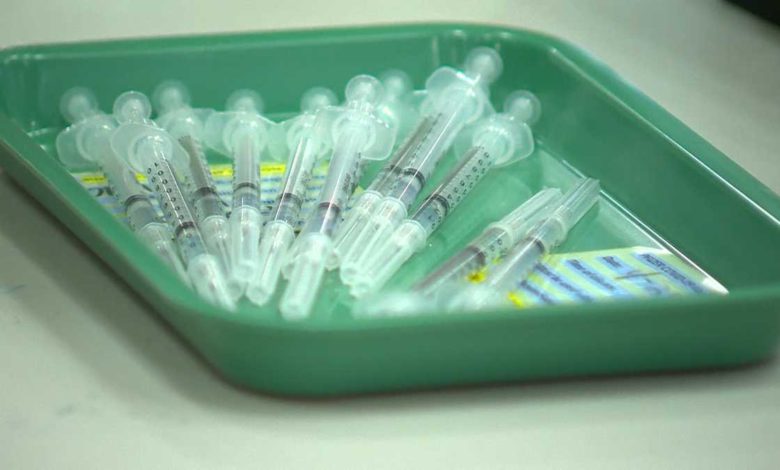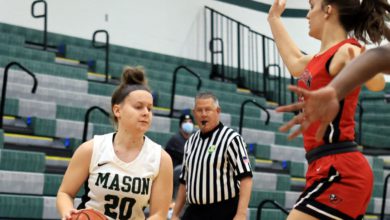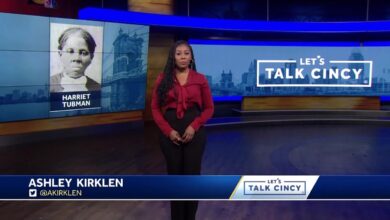

The U.S. is hitting major COVID-19 vaccination milestones, but health experts say those who are not inoculated should not rely on protection from those who are, as their infection risk hasn't gone down in response to declining cases."The work ahead of us is going to be really challenging because while the people who are fully vaccinated are well protected, we still have to keep on convincing individuals who are not yet vaccinated that they are not safe," CNN medical analyst Dr. Leana Wen said. "The pandemic is not over for them."The risk for unvaccinated people is in fact about the same as it was in the middle of the January surge, Wen said citing an analysis from the Washington Post.Half of the adult population in the U.S. is fully vaccinated, according to data published Tuesday by the Centers for Disease Control and Prevention. And for those people, the upcoming Memorial Day weekend — an event identified as a major source of spread last year — may look much like it did prior to 2020."Thanks to vaccines, tens of millions of Americans are able to get back to something closer to normal visiting friends and family," CDC Director Dr. Rochelle Walensky said at the White House coronavirus briefing Tuesday.The CDC guidance hasn't changed for those who are unvaccinated, however, as they are still at risk for infection, Walensky said."If you are not vaccinated, I want to encourage you to take this holiday weekend to give yourself and your family the gift of protection by getting vaccinated," Walensky said. "We are on a good downward path, but we are not quite out of the woods yet."While an Axios-Ipsos poll showed that only 44% of Americans socially distanced last week, down 12 percentage points from two weeks ago, Wen advised that unvaccinated people keep masking, distancing and practicing precautions.Taking steps closer to more normal childhoodsThere was also promising data Tuesday on COVID-19 infections in children.With nearly 40,000 new cases, the U.S. saw the lowest number of weekly cases among children since early-October, according to the American Academy of Pediatrics.Currently, only children 12 and older are eligible for COVID-19 vaccinations. While studies are underway for safety and efficacy in younger children, a vaccine for younger children likely won't be available until late fall or early winter, Dr. Anthony Fauci said.But given the number of vaccinated teachers and the significant decline in cases, the director of the National Institute for Allergy and Infectious Disease told the House Appropriations committee on Tuesday that it should be safe for children of all ages to go back to in-person class in the fall.A return to some normalcy for children is a welcome development for many, especially in light of the mental health challenges the pandemic has posed."People sort of shrug and say, 'Well, you know, kids are resilient,' but wait a minute, this is really an incredible unprecedented challenge to their life experience," National Institutes of Health Director Dr. Francis Collins told the House Appropriations committee on Tuesday.There are several questions new research will have to address, Collins said."What has it meant for them to be out of school, which is normally the place where a lot of socialization and education happens for this prolonged period. And what about this issue of being fearful of an illness that might actually affect your families, might suddenly be blamed on you if you were the one who happened to bring the illness in?" Collins said.Lottery tickets and full scholarships for vaccinations In the meantime, states are finding new ways to persuade residents to get vaccinated.In Delaware, officials announced a partnership with the Delaware Lottery to twice-weekly drawings for vaccination incentives.Delawareans aged 12 and older who were vaccinated "from May 25-June 29, and any Delawarean ages 12-17 vaccinated to date, will be entered to win $5,000 in cash and additional prizes in twice-weekly drawings conducted by the Delaware Lottery," according to a statement from Governor John Carney's office.Other prizes include a four-day vacation, a full scholarship to a Delaware public university and tickets to events, according to the statement."Incentive programs are one of three key levers that are becoming widely recognized for increasing vaccine rates," said Dr. Karyl Rattay, Director of the Delaware Division of Public Health.The Delaware plan mirrors initiatives in other states. Ohio, for example, has announced a lottery for vaccinated residents while West Virginia is offering a $100 savings bond to residents ages 16 to 35 who get the vaccines.In Arkansas, every resident who gets vaccinated starting May 25 will be given a $20 lottery scratch-offs or a gift certificate with Arkansas Game and Fish Commission for $21 that can be redeemed for fishing license or a hunting/fishing license in the state, Gov. Asa Hutchison announced in a press conference.
The U.S. is hitting major COVID-19 vaccination milestones, but health experts say those who are not inoculated should not rely on protection from those who are, as their infection risk hasn't gone down in response to declining cases.
"The work ahead of us is going to be really challenging because while the people who are fully vaccinated are well protected, we still have to keep on convincing individuals who are not yet vaccinated that they are not safe," CNN medical analyst Dr. Leana Wen said. "The pandemic is not over for them."
The risk for unvaccinated people is in fact about the same as it was in the middle of the January surge, Wen said citing an analysis from the Washington Post.
Half of the adult population in the U.S. is fully vaccinated, according to data published Tuesday by the Centers for Disease Control and Prevention. And for those people, the upcoming Memorial Day weekend — an event identified as a major source of spread last year — may look much like it did prior to 2020.
"Thanks to vaccines, tens of millions of Americans are able to get back to something closer to normal visiting friends and family," CDC Director Dr. Rochelle Walensky said at the White House coronavirus briefing Tuesday.
The CDC guidance hasn't changed for those who are unvaccinated, however, as they are still at risk for infection, Walensky said.
"If you are not vaccinated, I want to encourage you to take this holiday weekend to give yourself and your family the gift of protection by getting vaccinated," Walensky said. "We are on a good downward path, but we are not quite out of the woods yet."
While an Axios-Ipsos poll showed that only 44% of Americans socially distanced last week, down 12 percentage points from two weeks ago, Wen advised that unvaccinated people keep masking, distancing and practicing precautions.
Taking steps closer to more normal childhoods
There was also promising data Tuesday on COVID-19 infections in children.
With nearly 40,000 new cases, the U.S. saw the lowest number of weekly cases among children since early-October, according to the American Academy of Pediatrics.
Currently, only children 12 and older are eligible for COVID-19 vaccinations. While studies are underway for safety and efficacy in younger children, a vaccine for younger children likely won't be available until late fall or early winter, Dr. Anthony Fauci said.
But given the number of vaccinated teachers and the significant decline in cases, the director of the National Institute for Allergy and Infectious Disease told the House Appropriations committee on Tuesday that it should be safe for children of all ages to go back to in-person class in the fall.
A return to some normalcy for children is a welcome development for many, especially in light of the mental health challenges the pandemic has posed.
"People sort of shrug and say, 'Well, you know, kids are resilient,' but wait a minute, this is really an incredible unprecedented challenge to their life experience," National Institutes of Health Director Dr. Francis Collins told the House Appropriations committee on Tuesday.
There are several questions new research will have to address, Collins said.
"What has it meant for them to be out of school, which is normally the place where a lot of socialization and education happens for this prolonged period. And what about this issue of being fearful of an illness that might actually affect your families, might suddenly be blamed on you if you were the one who happened to bring the illness in?" Collins said.
Lottery tickets and full scholarships for vaccinations
In the meantime, states are finding new ways to persuade residents to get vaccinated.
In Delaware, officials announced a partnership with the Delaware Lottery to twice-weekly drawings for vaccination incentives.
Delawareans aged 12 and older who were vaccinated "from May 25-June 29, and any Delawarean ages 12-17 vaccinated to date, will be entered to win $5,000 in cash and additional prizes in twice-weekly drawings conducted by the Delaware Lottery," according to a statement from Governor John Carney's office.
Other prizes include a four-day vacation, a full scholarship to a Delaware public university and tickets to events, according to the statement.
"Incentive programs are one of three key levers that are becoming widely recognized for increasing vaccine rates," said Dr. Karyl Rattay, Director of the Delaware Division of Public Health.
The Delaware plan mirrors initiatives in other states. Ohio, for example, has announced a lottery for vaccinated residents while West Virginia is offering a $100 savings bond to residents ages 16 to 35 who get the vaccines.
In Arkansas, every resident who gets vaccinated starting May 25 will be given a $20 lottery scratch-offs or a gift certificate with Arkansas Game and Fish Commission for $21 that can be redeemed for fishing license or a hunting/fishing license in the state, Gov. Asa Hutchison announced in a press conference.
Source link









